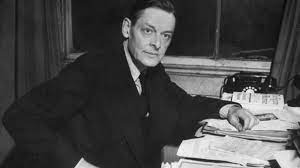|
Getting your Trinity Audio player ready...
|
Eliot was a well-known Essayist, Poet, Literary Critic, Editor, Playwright, and Publisher. But he was mainly famous for his poetry. He was considered one of the 20th century’s main poets. He was also a central figure in English-language Modernist poetry.
In 1948 he won a Noble prize and Order of Merit. Eliot was part of the ex-pat community of the 1920s and spent most of his life in Europe. He serves many services in addition to literary work.
Now, let’s have a look at the early life of Eliot and his services in English Literature that made him famous.
Eliot Early Life
Eliot was born on 26th September 1888. His full name is Thomas Stearns Eliot but he is famous for his pen name T.S. Eliot. He attended Smith Academy in St. Louis, and later went to the Milton Academy in Massachusetts as his family origin was New England.
After the turn of the century, he began seeing his short stories and poems in print. So that he would occupy writing for the rest of his life. In 1906, he started courses at Harvard University and graduated after 3 years with a Bachelor of Arts degree.
Later at Harvard, Eliot was influenced greatly by professors renowned in literary criticism, philosophy, and poetry. These professors shaped his literary career and motivated him to write amazing novels and books.
After completing his graduation, Eliot served as a philosophy assistant for a year at Harvard. Then he left for France and the Sorbonne to study philosophy. From 1911 to 1914, he stayed at Harvard and deepened his knowledge by reading Sanskrit and Indian Philosophy.
He finished his advanced degree in Europe but because of the onset of World War I, he never went back to Harvard for the final oral exam for his Ph.D. However, he married Vivienne Haigh-Wood and took a job in London as a school teacher.
Eliot published his first poetic masterpiece in 1915 called “The Love Song of J. Alfred Prufrock”. Later, he wrote a poem ”The Waste Land” in 1921 while recovering from exhaustion. This dense poem went on to redefine the genre and became the most talked about the poem in literary history.
Literary Success
In the working years, Eliot started a lifelong friendship with Ezra Pound, an American poet. He immediately recognized Eliot’s poetic genius and made efforts to publish his work. The first poem of this period was “The Love Song of J. Alfred Prufrock” which appeared in 1915 in poetry.
His first book Prufrock and Other observations and the collection made him the leading poet of his day. While writing poetry and doing his day job, he was busy writing literary reviews and criticism.
Eliot’s work in the criticism field would become as popular and respected as his poetry. Later in 1919, he published Poems that contained Gerontion. The poem was a blank-verse interior monologue and was different from anything that had ever been written in the English language.
With increasing attention, Eliot saw the publication of The Waste Land in 1922. But at the same time, his marriage was failing and both the partners were experiencing nervous disorders. However, he wrote the poem in such a situation and published it in the same year.
At that time, The Waste Land was considered the most influential work of the 20th century as it follows all the literary corners. Eliot founded what would become the literary journal and called it Criterion.
Eliot edited the journal throughout its publication spanning 1922 to 1939. After two years, Eliot left his bank post and joined the publishing house, Faber and Faber. Here he would remain for the rest of his career and guide many young poets.
The good thing was Eliot never stopped writing and giving amazing poems. Some of his amazing poems are
- Ash Wednesday – 1930
- The Use of Poetry and the Use of Criticism – 1933
- The Notes Towards the Definition of Culture – 1940
- After Strange Gods – 1934
- Four Quartets – 1943 and many others.
He received a Nobel prize for his contribution to the Literary field. You know about the importance of his work if you have read any of his poems. But if you have not yet, then you must read them to enhance your poetic knowledge.

